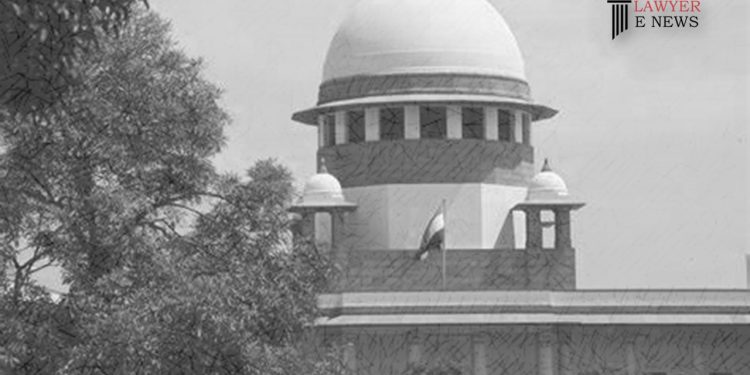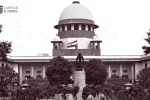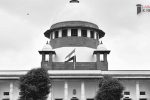Supreme Court: “Ministerial Statements Do Not Vicariously Implicate Government,” Additional Restrictions on Free Speech Unpermissible

In a landmark judgment rendered on January 3, 2023, the Supreme Court of India unequivocally ruled that statements made by ministers cannot be vicariously attributed to the government. The court made this significant observation while addressing a case that questioned the liability of the State for the tortious acts of its servants. The court’s ruling clarifies that a minister’s statement, even if connected to state affairs or intended to safeguard the government, cannot be used to hold the government liable, thereby discarding the principle of collective responsibility.
The bench, comprising Justices S. Abdul Nazeer, B.R. Gavai, A.S. Bopanna, and V. Ramasubramanian, also established that any additional restrictions on the right to free speech beyond those explicitly stated in Article 19(2) of the Constitution are impermissible. The court emphasized that the grounds enumerated in Article 19(2) for curtailing freedom of speech and expression are exhaustive, precluding the imposition of further restrictions based on other fundamental rights or claims.
The bench answered five crucial questions that were referred to it, bringing forth important legal principles and providing a comprehensive analysis of the constitutional provisions involved. Here is a breakdown of the key aspects addressed in the judgment:
- Freedom of Speech and Expression: The court clarified that additional restrictions beyond those specified in Article 19(2) of the Constitution cannot be imposed on the exercise of the right to free speech under Article 19(1)(a). It emphasized that any restrictions must strictly adhere to the grounds mentioned in Article 19(2).
- Enforcement of Fundamental Rights: The court held that fundamental rights under Article 19 or 21 can be enforced not only against the state or its instrumentalities but also against private individuals or entities. This ruling expands the scope of enforcing fundamental rights against non-state actors.
- Duty of the State to Protect Rights: The court emphasized that the state has an affirmative duty to protect the rights of individuals under Article 21, even when the threat to personal liberty arises from non-state actors. This recognition reinforces the state’s responsibility to safeguard the fundamental rights of citizens.
- Vicarious Liability of the Government for Ministerial Statements: The court clarified that a statement made by a minister cannot be attributed vicariously to the government. It rejected the application of the principle of collective responsibility in such cases, highlighting that a minister’s statement does not automatically reflect the stance of the government.
- Constitutional Tort: The court examined the concept of constitutional tort and its applicability. It held that a mere statement by a minister inconsistent with constitutional rights may not amount to a violation of those rights. However, if the statement leads to harm or loss due to the acts or omissions of government officials, it may be actionable as a constitutional tort.
Justice S. Abdul Nazeer, delivering the judgment, stated, “A mere statement made by a Minister, inconsistent with the rights of a citizen under Part III of the Constitution, may not constitute a violation of the constitutional rights and become actionable as Constitutional tort.” However, the court clarified that if the minister’s statement leads to acts or omissions by government officers resulting in harm or loss to an individual, it may be actionable as a constitutional tort, allowing affected individuals to seek legal remedies.
The court also underscored the urgent need for a comprehensive legislative framework to address constitutional tort. It lamented the lack of progress in enacting legislation despite previous recommendations, spanning over five decades, and emphasized the necessity of establishing a coherent legal framework. In the absence of specific legislation, the court expressed its willingness to fashion imaginative remedies to provide recourse to individuals who suffer injury or loss due to unconstitutional acts or omissions.
This pivotal judgment by the Supreme Court sets a definitive precedent for cases involving ministerial statements, the scope of free speech, and claims for compensation arising from constitutional torts. It underscores the court’s commitment to protecting fundamental rights and ensuring accountability, even in cases involving non-state actors.
DATE OF DECISION: January 03, 2023
KAUSHAL KISHOR vs STATE OF UTTAR PRADESH & ORS.






